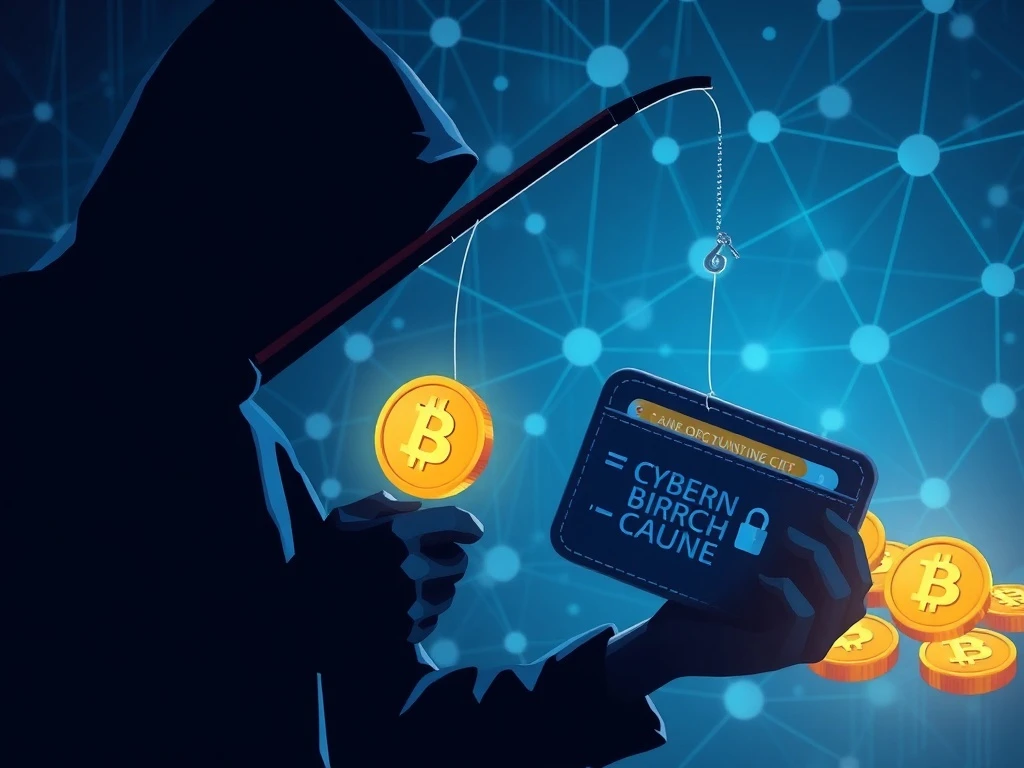A shocking $13.5 million cryptocurrency heist has rocked the DeFi world, revealing how sophisticated phishing attacks now target unsuspecting users rather than exploiting smart contract vulnerabilities. This incident demonstrates the critical need for enhanced security awareness in the rapidly evolving decentralized finance landscape.
The $13.5M Phishing Attack That Shook Venus Protocol
Venus Protocol, a major lending platform on BNB Chain, suffered a devastating security breach in late August 2025. However, the attack vector surprised many experts. Unlike typical DeFi exploits that target code vulnerabilities, this incident resulted from a user authorizing a malicious transaction. The attacker successfully siphoned stablecoins and wrapped assets directly from the user’s wallet.
Initial Reporting Errors and Correction
Blockchain security firm PeckShield initially misreported the loss amount as $27 million. They later corrected this figure after properly accounting for the user’s debt position. This correction highlights the complexity of assessing real losses in DeFi incidents. The accurate $13.5 million loss still represents one of the significant phishing attacks in recent months.
Broader DeFi Security Landscape in September 2025
The Venus Protocol incident occurred during a wave of cybersecurity incidents across the DeFi sector. Several other platforms experienced security challenges simultaneously:
- Bunni DEX halted smart contracts after detecting a $2.3 million exploit
- World Liberty Financial governance tokenholders faced phishing attempts
- August 2025 recorded over $163 million in losses across 16 incidents
Venus Protocol’s Immediate Response Measures
The platform quickly paused operations to conduct a comprehensive security review. Their transparent communication strategy included regular updates through social media channels. Importantly, Venus Protocol confirmed that their smart contracts remained secure throughout the incident. The native XVS token and core infrastructure faced no direct threats from this phishing attack.
Understanding Modern Phishing Techniques in DeFi
Today’s phishing schemes employ sophisticated social engineering tactics. Attackers commonly impersonate legitimate entities to gain unauthorized access. They create convincing fake interfaces and websites that mimic authentic DeFi platforms. Users often encounter these threats through:
- Fake customer support representatives
- Compromised social media accounts
- Malicious airdrop announcements
- Fake protocol upgrade notifications
The Critical Importance of User Education
This incident underscores the growing need for better user education in cryptocurrency security. While developers continue strengthening smart contract security, users must become more vigilant about transaction approvals. The DeFi community must prioritize security awareness alongside technological innovation.
Future Security Measures and Industry Impact
Venus Protocol plans to release a detailed report outlining preventive measures. The industry expects increased focus on wallet security improvements and transaction verification processes. This incident will likely accelerate development of better security tools and educational resources for DeFi participants.
Frequently Asked Questions
What exactly caused the $13.5 million loss at Venus Protocol?
The loss resulted from a user approving a malicious transaction, not from any smart contract vulnerability. The attacker used phishing techniques to gain transaction authorization.
How did PeckShield initially miscalculate the loss amount?
PeckShield initially reported $27 million before accounting for the user’s debt position. After proper analysis, they corrected the figure to $13.5 million.
Was the XVS token compromised during this incident?
No, the native XVS token and Venus Protocol’s core infrastructure remained secure throughout the incident. The attack only affected individual user assets.
What security measures did Venus Protocol implement after the attack?
The protocol paused operations for a security review, maintained transparent communication, and is developing additional security measures to prevent similar incidents.
How can users protect themselves from similar phishing attacks?
Users should verify all transaction requests, use hardware wallets, enable additional security layers, and never share private keys or seed phrases with anyone.
Are phishing attacks becoming more common in DeFi?
Yes, phishing attacks have increased alongside DeFi’s growth, with attackers increasingly targeting users rather than exploiting code vulnerabilities.








